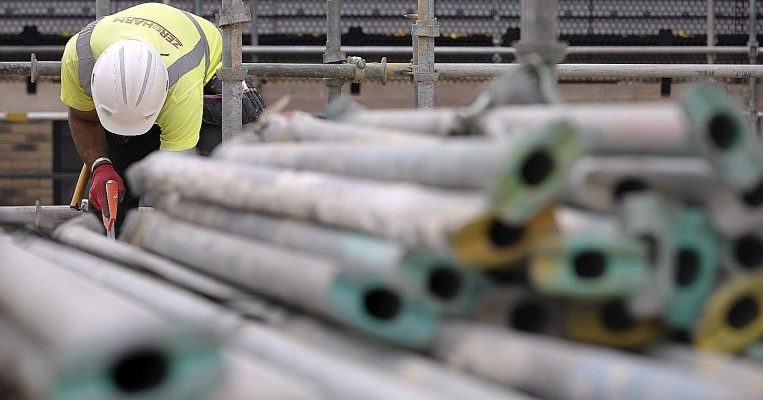
LONDON • Behind the noise of another tumultuous few days in politics, the United Kingdom’s economy quietly had one of its worst weeks this year.
Warning lights are flashing red, with manufacturing and construction shrinking, and even the dominant service sector losing momentum, prompting forecasts that Britain is heading for a recession.
At the same time, the housing market is stuck in a rut, retail sales are disappointing and shoppers are worried that Brexit will push up prices.
Last week did little to lift the fog after Prime Minister Boris Johnson suffered a series of defeats, lost his majority in Parliament and failed in a bid to force early elections.
While the public was gripped by the political drama, the reports highlight the economic cost of the chronic uncertainty surrounding Britain’s departure from the European Union.
“The economy is rusting up quite visibly in the data,” said Mr Kit Juckes, chief global foreign exchange strategist at Societe Generale.
“It’s just getting slowly worse. There’s no momentum to anything,” he added.
A report tomorrow will give an early indication of how likely an imminent recession is.
After contracting 0.2 per cent in the second quarter, the economy can be expected to have grown just 0.1 per cent in July.
A weaker reading could prompt economists, who currently see a recovery in the third quarter, to start downgrading their outlooks.
Still, movements in the pound last week showed that traders are glued to political and not economic news.
On Tuesday last week, the currency slipped below US$1.20 for the first time since 2017.
Then, the passing of an Opposition Bill, reducing the risk of no-deal Brexit, gave the sterling its best week since June.
Despite all that, Britain’s future is far from certain – and the economy looks to be in an increasingly fragile state.
Even before the latest political turmoil, confidence among households was crumbling.
A Bank of England survey on Friday showed that inflation expectations for the coming year stand at 3.3 per cent, with more than half of Britons saying that Brexit would push prices up. Inflation is currently just over 2 per cent.
Businesses are also taking a hit. A report last Monday showed that manufacturing and construction shrank last month, while services came close to stalling.
If consumers start to tighten their belts, the economy’s problems will deepen.
Retail industry figures last week showed that sales fell last month from a year earlier, the third drop in four months.
According to Schroders economist Azad Zangana, households did not cut their spending as expected after the 2016 EU referendum.
Instead, they saved less and “ate into their safety buffer”.
BLOOMBERG
